Understanding the Significance of Life Skills in Autism Support
Developing life skills is critically important for individuals on the autism spectrum to increase independence and improve overall quality of life. These skills encompass daily routines, self-care, social interactions, and practical abilities crucial for navigating the world confidently. This article explores the various resources, curricula, strategies, and programs available to support the development of these essential skills, emphasizing best practices and innovative approaches.
Foundations of Autism Life Skills Development
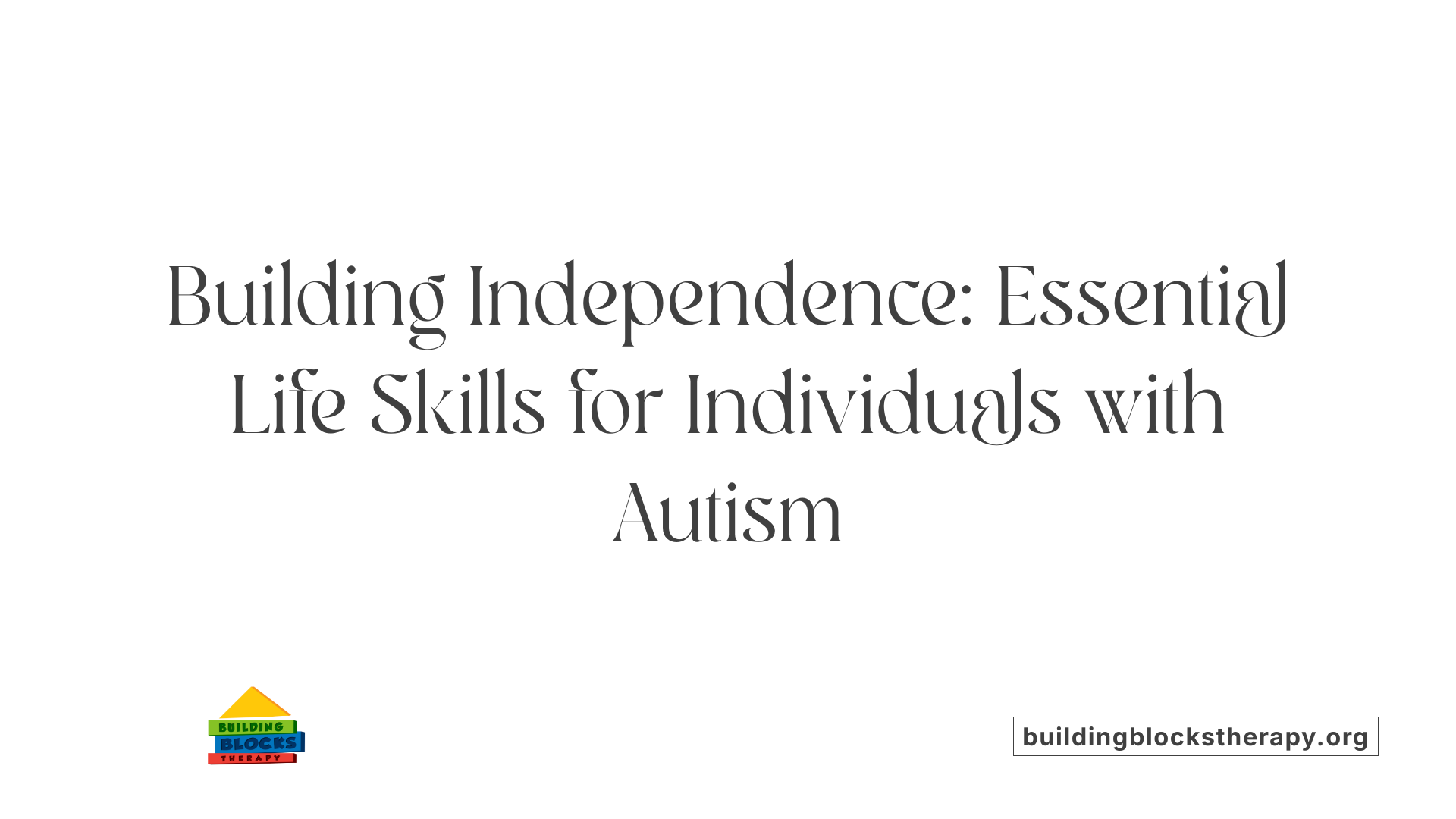
What basic life skills are important for individuals with autism?
For people with autism, mastering a broad set of daily living skills is vital for fostering independence. These skills encompass self-care activities such as hygiene, dressing, and grooming. Additionally, practical abilities like cooking, shopping, and managing household chores help them function confidently within their homes.
Managing money, including recognizing coins and bills, budgeting, and making small purchases, is also crucial for financial independence. Transportation skills involve understanding how to navigate public transit or plan routes for safe community travel. Organization of personal spaces, such as keeping rooms tidy, and knowing how to get to locations safely enhance autonomy.
These foundational skills not only facilitate daily routines but also support social participation and employment opportunities. They are interconnected with executive functioning abilities, like planning, prioritization, and decision-making, which enable individuals to apply these skills effectively in real-life scenarios.
Curriculum and Strategies for Teaching Life Skills
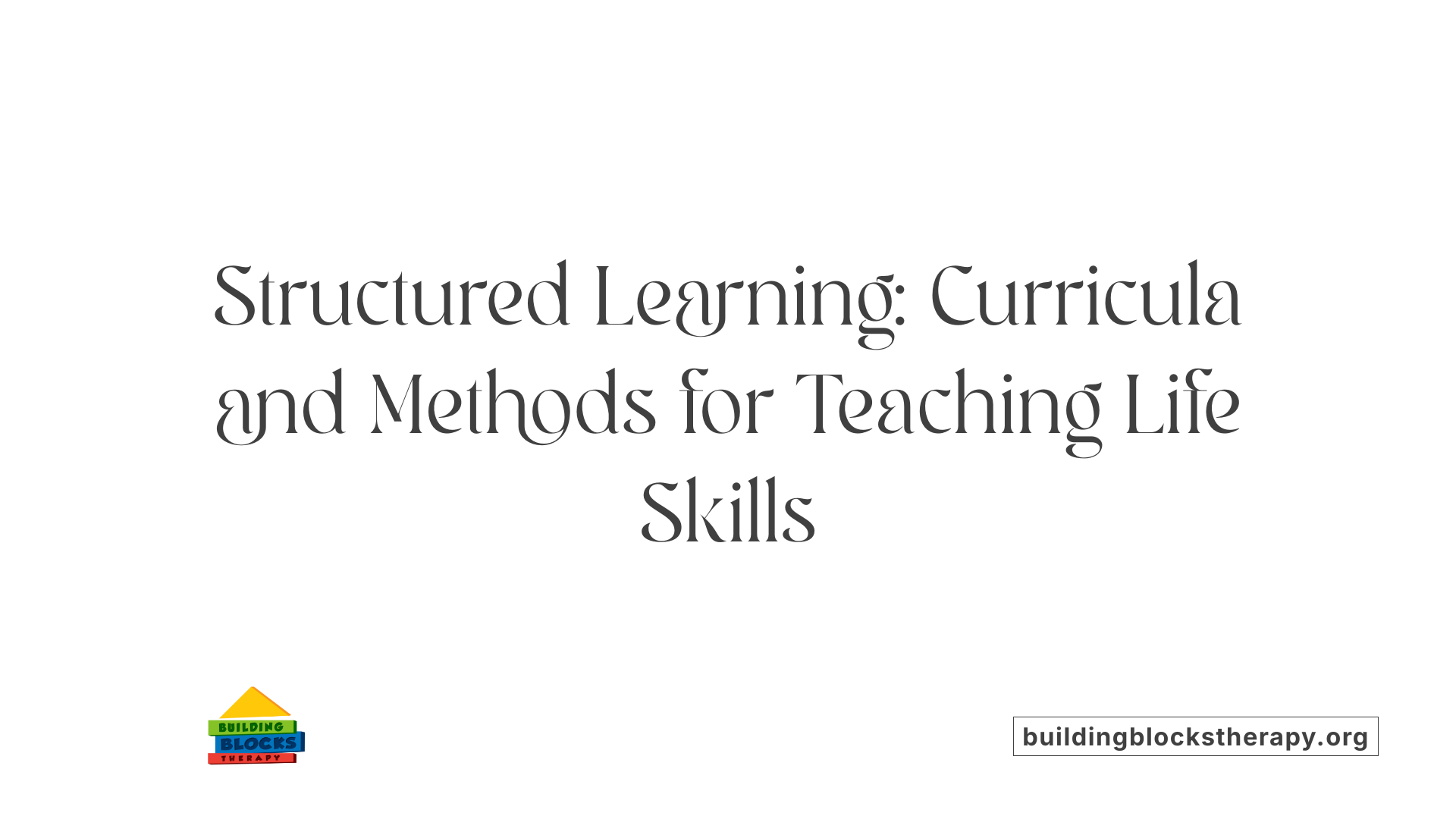
Are there specific curricula or lesson plans designed to teach life skills to individuals with autism?
Yes, there are many specialized curricula and lesson plans created specifically to teach essential life skills to those on the autism spectrum. These programs include over 15,000 resources like worksheets, task cards, social stories, and visual supports. They are designed for a wide age range, from preschoolers to adults, ensuring tailored approaches for every developmental stage.
Educational professionals and specialists develop these materials to maximize learning effectiveness. Many are freely available online, while some programs offer paid resources that include detailed lesson plans, videos, and interactive tools. These curricula often focus on practical areas such as self-care, safety, communication, social interactions, vocational readiness, and daily living activities like shopping, budgeting, and job application skills.
Utilizing these structured programs helps caregivers and educators provide consistent, targeted instruction, boosting independence and confidence among individuals with autism. In addition, supplementary tools like video tutorials, blogs, and online strategies further support the effective teaching of these important skills.
Methods like task analysis, chaining, video modeling, visual supports, social stories, and role-playing
Various teaching techniques are employed to enhance learning and generalization of life skills.
Task analysis involves breaking a skill into smaller, manageable steps, making complex activities easier to learn.
Task chaining links these steps together, teaching individuals to perform each part systematically until the entire task is mastered.
Video modeling uses videos to demonstrate skills, which is especially useful for visual learners. Watching real-life examples helps individuals imitate behaviors accurately.
Visual supports such as charts, checklists, and schedules provide visual cues and structure, aiding memory and organization. These tools enhance comprehension and independence.
Social stories are short, tailored narratives that teach social norms and safety in specific situations. They help improve understanding and appropriate responses.
Role-playing allows individuals to practice skills in simulated environments, building confidence and social competence.
Combined, these methods form a comprehensive approach that aligns with how many individuals with autism learn best. This multimodal strategy promotes skill mastery, generalization to real-world settings, and long-term independence.
Key Life Skills for Daily Independence
What are key life skills that individuals with autism should learn to improve daily functioning?
For individuals with autism, mastering a variety of life skills is essential to increase independence and quality of life. These skills span areas such as self-care, household chores, cooking, money management, transportation, safety awareness, social interaction, communication, and self-advocacy.
Teaching these skills effectively requires a natural, real-world context. For example, practicing cooking while preparing a meal, or navigating public transportation in the community, helps connect learning with daily life.
A structured, three-step approach can support successful skill development: first, assess the individual's current abilities; second, introduce the new skill using visual aids like checklists, charts, or videos; and third, allow ample practice in realistic settings to promote mastery and generalization.
Visual supports such as step-by-step checklists, task analysis, and social stories are highly effective. They help individuals understand and remember complex tasks by breaking them into manageable parts.
Core life skills include safety awareness—recognizing dangers and following emergency protocols—along with social interaction skills like initiating conversations and understanding social cues.
Communication skills are also fundamental, enabling individuals to express their needs, wants, and feelings clearly. Exercises with role-playing, social stories, and visual cues support these developments.
Self-advocacy is another vital aspect, involving teaching individuals to communicate their preferences and boundaries, fostering independence and confidence.
Community involvement and vocational training further enhance these skills, preparing individuals for real-world employment and social participation.
Ongoing programs, such as the full-year transition programs and community-based instruction, emphasize functional academics and daily living skills like budgeting, shopping, and using public transportation.
Research underscores that daily living skills are predictive of adult independence. Many autistic teens and young adults develop these skills more slowly than their peers, especially in areas like money management or personal care.
Interventions such as detailed checklists, video modeling, and hands-on practice are designed to teach these skills effectively. For example, teaching money management might involve recognizing coins and bills, role-playing shopping trips, and practicing making small purchases.
Overall, tailored instruction that combines visual tools, practice in real settings, and consistent support promotes independence. This approach helps individuals with autism build confidence, participate fully in their communities, and achieve successful, satisfying lives.
Assessments and Measurement of Progress
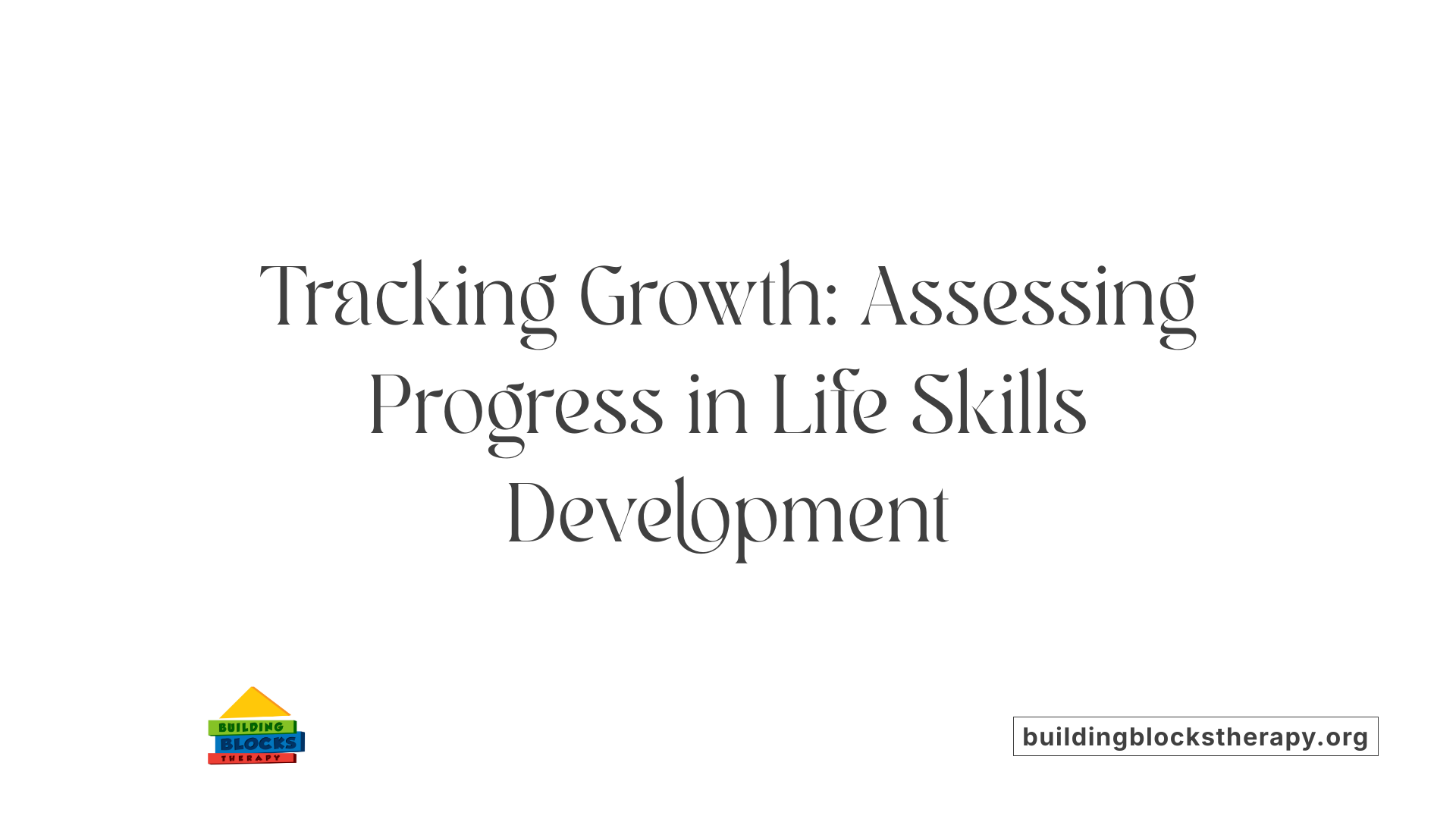 Evaluating the development of life skills in individuals with autism is an essential part of planning effective interventions and monitoring progress. Several assessment tools and checklists are available to help families, educators, and support professionals gauge competencies in areas such as personal care, household management, safety, and social skills.
Evaluating the development of life skills in individuals with autism is an essential part of planning effective interventions and monitoring progress. Several assessment tools and checklists are available to help families, educators, and support professionals gauge competencies in areas such as personal care, household management, safety, and social skills.
One commonly used resource is the Adult Independent Living Skills Checklist. This comprehensive tool assesses a range of skills including grooming, cooking, money management, and community navigation. Similarly, the Adolescent Autonomy Checklist focuses on skills pertinent to teenage development, such as self-care routines, organizational skills, and social communication.
These checklists serve multiple purposes. They provide a structured way to identify current abilities and highlight areas needing improvement. Additionally, they aid in developing personalized goals by pinpointing specific skill deficits and strengths. This targeted approach ensures interventions are relevant and effective, fostering greater independence.
Many of these assessment tools are available in printable formats, making them practical for ongoing use in various settings. They are particularly helpful during transition phases from adolescence to adulthood, as they support detailed planning for skill acquisition and maintenance.
Using these tools regularly allows support teams to track progress over time, adjust teaching strategies, and celebrate milestones achieved. Overall, employing well-structured evaluation measures is vital in advancing the independence and quality of life for individuals with autism.
| Assessment Tool | Focus Area | Usage & Benefits |
|---|---|---|
| Adult Independent Living Skills Checklist | Self-care, household, financial skills | Tracks progress, identifies gaps, guides intervention |
| Adolescent Autonomy Checklist | Teen-specific skills, social, organizational | Supports transition planning, goal setting |
| Additional Checklists | Safety, communication, social skills | Complements primary tools, provides broad overview |
These resources collectively create a comprehensive picture of an individual’s independence levels, enabling tailored support strategies. Regular assessment and documentation reinforce a cycle of continual growth, helping individuals with autism reach their full potential for independent living.
Implementing Effective Programs and Techniques
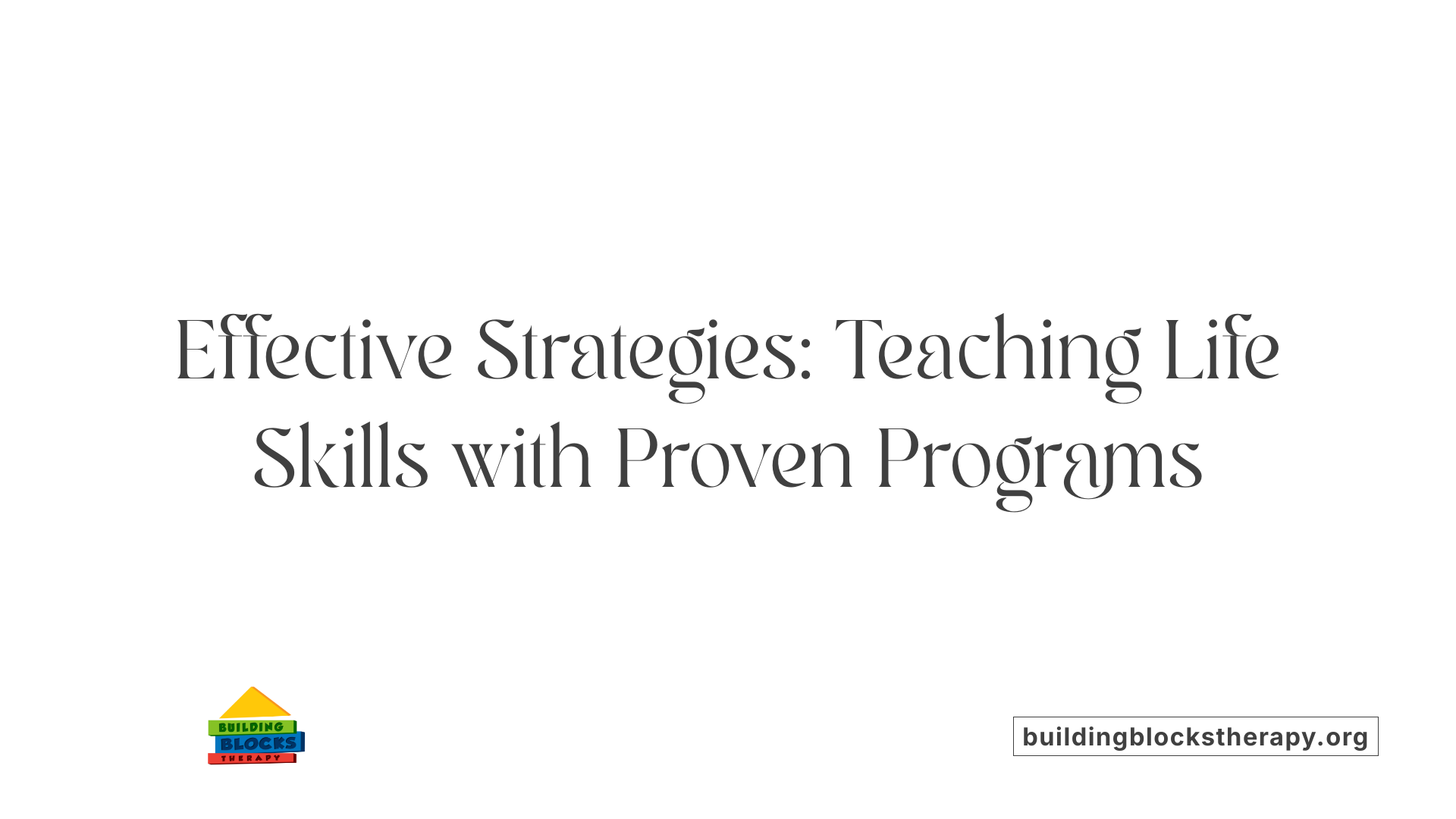 What are some effective life skills programs and strategies for individuals with autism?
What are some effective life skills programs and strategies for individuals with autism?
Effective programs designed to teach life skills to autistic individuals use a combination of approaches tailored to their specific developmental and learning needs. Structured teaching methods such as task analysis, chaining, and video modeling are commonly employed to break down skills into manageable steps and provide clear, visual demonstrations.
These programs focus on critical areas vital for independent living, including self-care, domestic chores, money management, transportation, safety protocols, social interaction, and community participation. For example, teaching how to handle money involves recognizing coins and bills, practicing small purchases, and understanding budgeting.
A cornerstone of these programs is the use of visual supports—charts, checklists, visual schedules, and assistive technology—that help reinforce learning, organize tasks, and enhance memory retention. Visual aids are particularly effective because they provide concrete cues that make abstract concepts more understandable.
Community-based learning and hands-on experiences are integral to developing real-world skills. Practicing shopping trips, public transit use, or restaurant visits in natural settings allows individuals to apply what they have learned in a practical context, increasing confidence and competence.
Specialized curricula from organizations such as Autism Speaks and CIP Worldwide include components tailored for independent living, like time management, cooking, housekeeping, and safety training. These programs often incorporate functional academics, vocational training, and social skills development, emphasizing lifelong skills that promote self-determination.
Evidence supports that combining these strategies with consistent practice across different environments fosters generalization of skills—meaning individuals can apply learned behaviors in varied real-life situations. Such comprehensive approaches contribute to improved independence, better outcomes at home, school, work, and in the community, and ultimately, a higher quality of life for autistic individuals.
Supporting Transition and Autonomy for Adults with Autism
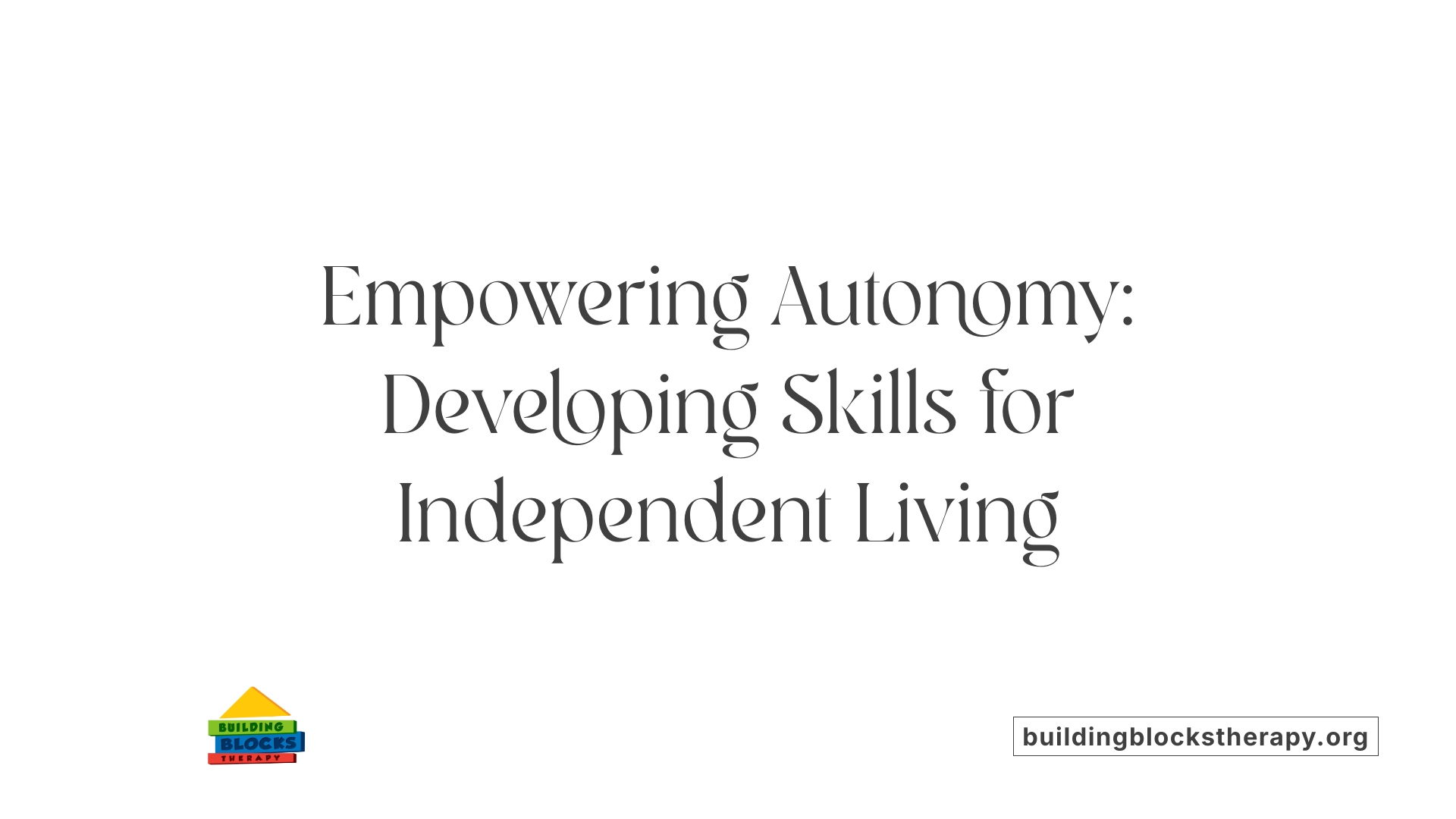
How can life skills support independence and transition to adult life for individuals with autism?
Developing life skills is essential for helping adults with autism to live independently and successfully transition into adulthood. These skills cover a wide array of practical abilities, including self-care routines, household chores, managing personal safety, financial literacy, and navigating community resources.
Teaching these skills through structured methods such as visual supports, task analysis, and real-world practice enables individuals to learn and apply them confidently across different settings. For example, learning to budget, shop, cook, and use transportation fosters self-sufficiency.
Beyond practical skills, focusing on executive functioning—like planning, organizing, and decision-making—is crucial. Improving these cognitive processes allows adults to better manage their daily routines, make informed choices, and solve problems effectively.
Building on these foundational skills, promoting self-advocacy and social interaction further empowers adults to express their needs, seek support, and form meaningful relationships within their communities.
Overall, targeted life skills training helps reduce dependency on caregivers, enhances self-esteem, and supports an independent lifestyle. This, in turn, leads to improved life satisfaction, better employment opportunities, and seamless integration into various aspects of adult life.
Building a Future of Independence and Confidence
Equipping individuals with autism with vital life skills is essential to empower them to lead independent, fulfilling lives. Resources such as specialized curricula, assessment tools, community programs, and structured intervention strategies play a crucial role in this developmental journey. Personalized teaching methods—like visual supports, task analysis, and natural environment practice—ensure skills are learned effectively and generalized to real-world settings. As these individuals gain confidence and competence, they can navigate daily routines, manage social interactions, and pursue meaningful employment, greatly improving their overall quality of life. Supporting ongoing education and tailored programs remains pivotal in fostering self-reliance, advocating for their needs, and promoting successful transition into adulthood.
References
- Life skills for autism | Autism Speaks
- Life Skills Programs | Autism Speaks
- Building Independent Living Skills For Young Adults on the Autism ...
- Daily Living Skills: A Key to Independence for People with Autism
- Autism Life Skills Specialist, Advocate, & Coach - Life Skills Lady
- 10 Essential Life Skills to Teach Your Child with Autism
- Life Skills for Autistic Adults - Behavioral Intervention For Autism
- 5 Autism Life Skills To Help Kids into Independent Living
- Independent Living Skills | CIP Autism & LD Transition Programs
- How to teach Life Skills to children with Autism






